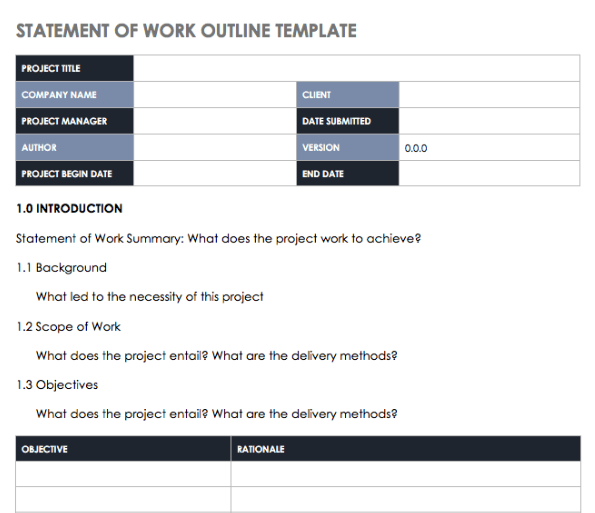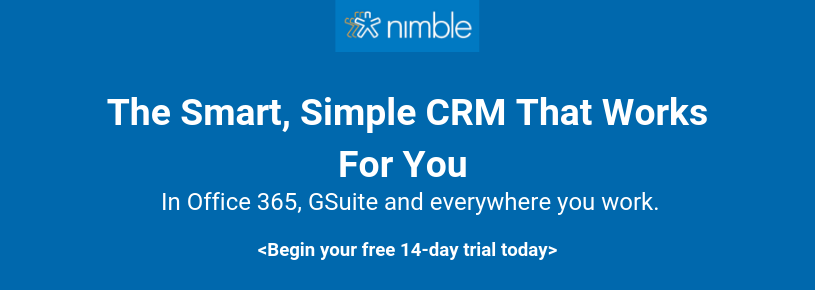There are many documents that need to be created within the project for it to succeed. Have you ever thought about which one is the most powerful and important? The answer is a statement of work.
Let’s find out what and why makes the statement of work so important.
What is a Statement of Work?
What does a statement of work do? Statement of work definition, no matter the field of work, is as follows: a statement of work (SoW) is a document that describes every important thing about the project. It contains information about requirements, timelines, deliverables, specific activities, and costs. It should be highly detailed because it’s the foundation for your project.
What Should Be Contained in a Statement of Work?
A project statement of work should cast a light upon the following aspects of the project:
- Introduction. The information about what work is going to be done should be included here.
- Purpose. It contains the answer to the following questions: Why are we launching this project? What purpose we are trying to reach?
- Scope. This item contains information about the details of the work that is going to be done: what, how and when. Besides, it’s nice to include the software needed for the completion of work. If the project is massive, it’s better to divide it into a few milestones.
- Location. Here, you need to indicate where the team is supposed to work. Is it a team based in your own office? Is it outsource/out staff? Or maybe the teammates can work remotely?
- Tasks. Taking the items from the scope of work and describing each in detail is what you are doing at this step.
- Deliverables. What and when must be delivered. Include all the relevant details.
- Schedule. Create a detailed list of all the deliverables and when each of them should be done.
- Standards and Testing. If there are any standards or testing required, mention them here.
- Success criteria. Mention what the deliverables are supposed to be in a successful project.
- Requirements. Any other equipment, certifications of the team, or travel funds needed.
- Payment. What and when needs to be paid: ahead or after the deliverables are received? Or maybe by milestones? Describe this in detail here.
- Miscellaneous things. Include any other important information not included in the paragraphs above.
What Is the Difference Between SoW and Scope?
Statement of work vs scope of work is a question that may arise. As you can see from the components of SoW mentioned above, the scope of work is just a part of the statement of work, although a significant part. While SoW is about the goals, requirements, costs, timelines, etc., the scope of work is about the way everything on the list is going to be achieved.
Examples of a Statement of Work
There are three main types of SoW, which can be defined as the following statement of work examples:
- Performance-Based. This is the classic SoW example for project managers. The benefit of this type is that it is focused on the purpose of the project, the quality level, and the resources needed to achieve it. However, it doesn’t include a description of the ways the project should be done. So, it gives the team some freedom.
- Design/Detail. This type of SoW is based on the details about how the work needs to be done. In this case, the service provider is the one who is responsible for creating the statement of work because they need to explain in detail how the project needs to look like. Usually, the document is built by choosing any of the requirements from the list and adding a detailed explanation of what should be done and how it should be done.
- Level of Effort/Time and Materials/Unit Rate. This is the most flexible and universal type that will suit any project, but it’s usually used for short-termed, hourly-paid projects. It explains the service that should be done and the period of time.
7 Tips for Writing a Statement of Work
These tips will help you in developing a statement of work.
- Split your project. Don’t flood your scope with tons of information. If you have a big project, divide it into milestones.
- Make a plan. Know exactly what you are doing. Define the deliverables, deadlines, quality criteria, cost, tasks.
- Frame it into the context. When starting any task or requirement, it’s good practice to mention the purpose of the activity.
- Be clear. Everything you mention in your statement of work should be simple and clear. Ambiguity is unacceptable in writing a good statement of work.
- Be specific. The project boundaries should be clearly defined. It would be a great temptation for the service provider to expand the project without them.
- Negotiate. You should make assumptions about the expectations of the deliverables and project in general. The requirements should be very specific, detailed, and clear.
- Share. It’s important to make sure that the SoW is accessible and clear to every teammate and to the service provider as well.
Also, don’t forget to write in a simple and clear language. Define technical vocabulary for the service provider to understand you easily. It is very important to be sure that you are on the same page.
SoW Templates
There are different standards of writing a statement of work in companies. The most comfortable way to create a SoW is using templates. Usually, a statement of work template looks this way:

What Are the Benefits of Using the SoW?
Representing a statement of work to a client is a great way to prove your professionalism. It’s also a great way to build qualitative and trusty business relationships.
A well-written statement of work is a great way to stand out. It’s no secret that clients always like to have multiple options, so it’s highly important to assert yourself. SoW helps you to prove that you are serious about what you are doing.
A good statement of work contains many details, structured and logically relevant. This helps the negotiations to run more productive and faster.
A well-organized statement of work helps you to save time. Of course, you need to spend time on writing the SoW, but you should always remember that spending time in advance allows you to save a lot of time later.
If you are a project manager, product owner, or business analyst, don’t hesitate to start writing a statement of work in your everyday strategy — you will see all the marvelous benefits soon!


